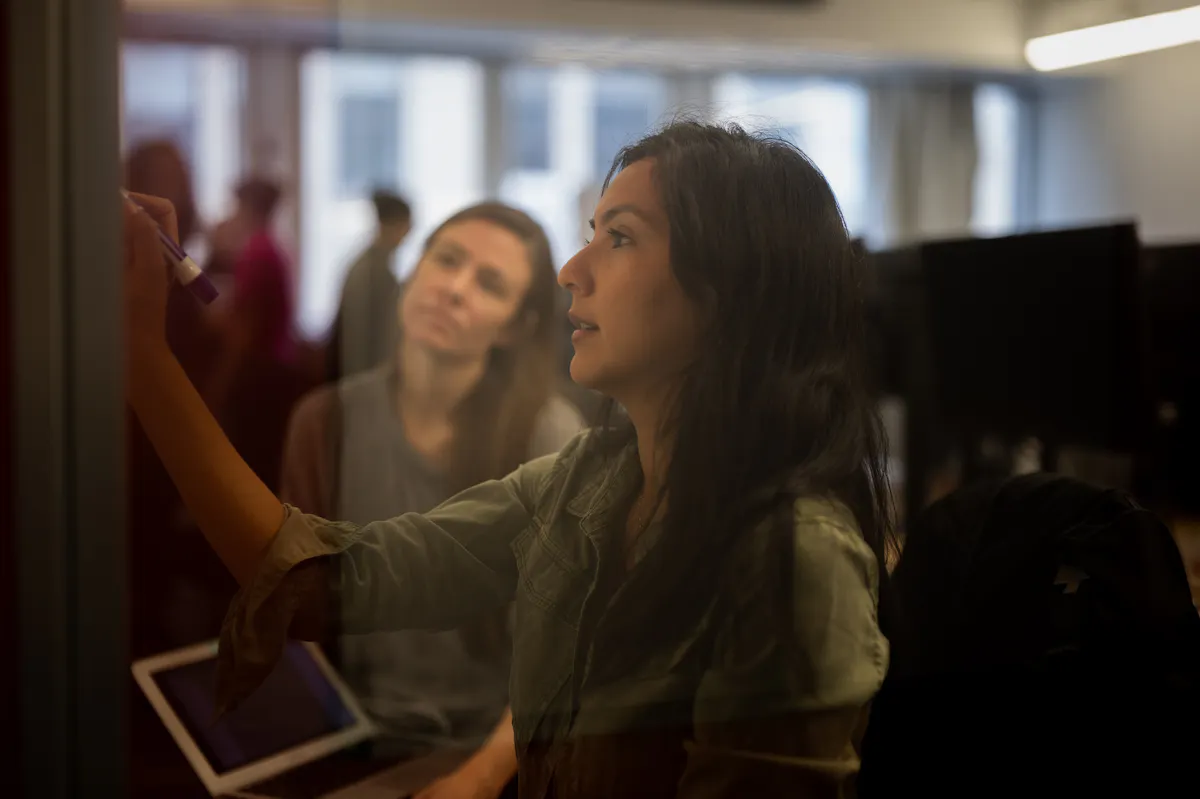Fill out the form to get more information about the Grace Hopper Program bootcamp of your choice.
10.27.2022
Creating Real Gender Inclusivity in Tech: Our Team’s Biggest Takeaways from the 2019 AnitaB.org Male Ally Summit
By Rachel Miller

Creating gender-inclusive environments leads to tremendous results, but for most of us, taking that first steps toward acknowledging our own gender biases feels strange and uncomfortable. Enter the 2019 AnitaB.org Male Ally Summit in New York, a conference designed to demystify how men can become allies in the workplace.
“It’s a unique event in that it provides a safe space for male allies—and those who can become great allies—to talk about the challenges that women and femmes face in the workplace,” said Michele Cantos, director of The Grace Hopper Program at Fullstack Academy. “It’s also a place for them to be vulnerable about the fears, embarrassment, or just general confusion about how to be supportive.”

Michele Cantos leads the Grace Hopper Program, the all-women’s software engineering immersive that offers a risk-free education with no upfront tuition (and students who don’t find work don’t pay). She found this year’s event to be especially impactful for attendees. “I was very proud of the men in the room for openly sharing moments when they made mistakes or mishandled a situation and how they later rectified it. And it was encouraging to see a broad spectrum of understanding in the audience.”
Michele was joined by Dan Sohval, Fullstack’s director, who was also a speaker at the event. His talk, “De-Brogramming Our Brains: A Skills-Based Approach to Mitigating Implicit Bias,“ was an abridged lecture from the Fullstack curriculum. The tools and techniques Dan offered resonated with the audience—mostly male, mostly caucasian—because many of the men were eager to be better allies but had not received any mentorship, training, or advisement from fellow men on how to act on their values.
According to Dan, “Rather than treating allyship as an intrinsic moral or value set that one does or doesn't have, we framed it as a skillset that individuals can choose to hone through mindful practice. This let us have a productive dialogue that left participants with actionable strategies they could bring back to their workplaces.”

We believe that transparency is important for building trust and credibility. During his talk, Dan shared a story about a personal negative behavior that he had to address. He acknowledged that he was an interrupter, so he developed a corrective action to change. Now, when he wants to say something in a meeting, he'll raise his hand.
Fullstack is committed to fostering an inclusive environment for students and employees. Instead of just talking about inclusivity, we aim to show the cause and effect of thinking and acting inclusively and to prove there are material benefits for changing one’s behaviors. This was recently noted by one of Fullstack’s own Grace Hopper students, Chloe, in a tweet.
It is SO (good)weird to be at a place that honestly cares enough about inclusion to give a lecture on Unconscious Bias in week one, with the note that if you don't pay attention to them, you're out of the program.
❤️ you @gracehopperfsa !!!!
— ChloeChloeChloe (@CaptainKuroii) November 7, 2019
Fullstack Academy proudly sponsored the AnitaB.org Male Ally Summit as one concrete way to promote a more inclusive environment for all. Learn more about our commitment to gender inclusivity through our deferred tuition model and the Lesbians Who Tech Scholarship.


